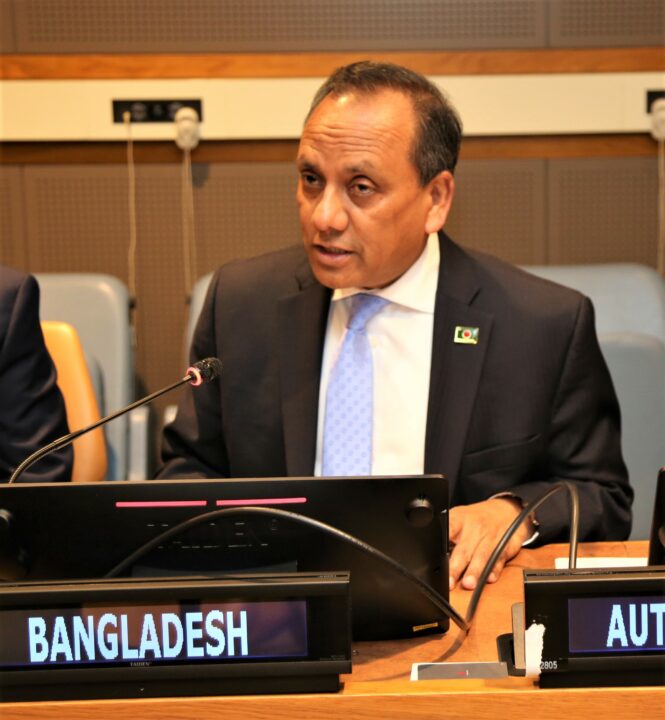Thank you, Moderator.
Excellencies, dear friends, and distinguished colleagues,
I thank Permanent Mission of Qatar, my dear friend Ambassador Alya Ahmed S. Al Thani, Permanent Representative of Qatar and the World Health Organization (WHO) for cohosting the event today.
Children with developmental disabilities exhibit unique characteristics such as atypical social interactions, non-standard ways of learning, keen interests in specific subjects, inclination to routines, challenges in typical communications and particular ways of processing sensory information.
As we mark World Autism Day, it is critically important to acknowledge the unique challenges these children face, including stigma, exclusion, and a lack of understanding and accommodation in society.
Excellencies and distinguished colleagues,
Unfortunately, children with developmental disabilities continue to face significant challenges in accessing healthcare services, education, and opportunities for social participation. They are more vulnerable to violence and discrimination, and often experience exclusion from many aspects of society, leading to disparities in social outcomes and overall quality of life.
I would like to express my sincere gratitude to the WHO for releasing the first report on the world’s children with developmental disabilities, which offers a framework for accelerating policy and care system changes, promoting whole-of-society transformation, and creating conditions for inclusive and responsive care systems.
As we renew commitments to inclusive societies and universal health coverage, it is crucial to ensure that children with developmental disabilities are no longer relegated to the margins, but are instead integrated into the mainstream.
In this regard, allow me to highlight the following points:
First, it is imperative that children with developmental disabilities are placed at the center of the discourse and prioritize their needs. This means we must invest in programmes and policies that address their unique needs and equalize opportunities.
In this regard, early interventions, such as speech and language therapy, occupational therapy, and behavior therapy, are critically important to help them develop the skills they need to succeed in life.
Second, we must celebrate the unique talent, strengths, and abilities of the children with developmental disabilities and work towards creating a more inclusive society that values and embraces neurodiversity. We should ensure that every child, including those with developmental differences, has the chance to thrive and contribute to their fullest potential.
Inclusive education is a key strategy for harnessing the full potential of these children. Creative expression, such as art, music, and drama, can also be a powerful tool for them to thrive.
Third, stigmatization and discrimination are significant challenges that hinder diagnosis and treatment of ASD, which require serious attention of policymakers. Raising awareness, encouraging diversity, collaborating with stakeholders to create a more equitable and inclusive society and providing access to support and services are critical in reducing the stigma and discrimination associated with neurological differences.
Fourth, artificial intelligence (AI) enabled personalized assistive technology can be a game-changer for children with developmental disabilities. By using AI-powered technologies, such as speech recognition software, communication devices, and sensory aids, we can help these children to overcome some of the challenges they face and improve their quality of life.
International cooperation, in this regard, is essential to ensure that these assistive technologies are made available and affordable to all countries, particularly developing countries.
Finally, I urge all to work together to come up with innovative solutions to better integrate individuals with disabilities into the community and leave no one behind.
I thank you all.

